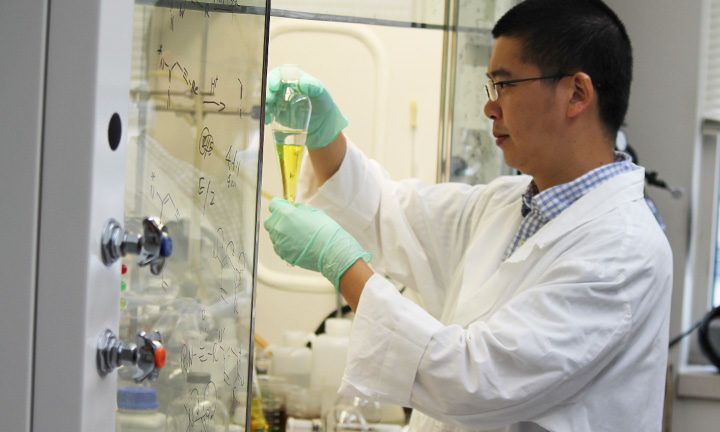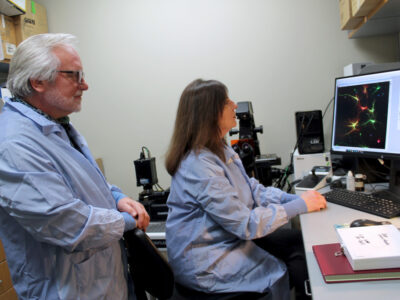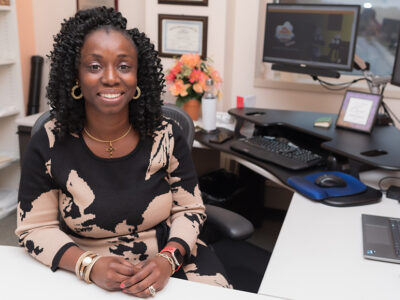
26
June

A key translational research initiative for Dean and Professor Steve Swanson is realized this July as the Medicinal Chemistry Center (MCC) of the UW-Madison School of Pharmacy is launched. The mission of the new center is “to provide drug discovery expertise to university medical researchers and to drive translational research on campus through designing and synthesizing novel small molecule based therapeutics.” Swanson, along with MCC co-directors Weiping Tang, associate professor, Pharmaceutical Sciences and Chemistry, and F. Michael Hoffmann, professor, Oncology and Medical Genetics, School of Medicine and Public Health, make up the center’s leadership. New Pharmaceutical Sciences Assistant Professor Jennifer E. Golden will contribute as associate director to the MCC, with her multiple years of drug discovery experiences at Amgen and the University of Kansas. Three staff PhD scientists—John Feltenberger, Zhi-Xiong Ma, and Zheng-Qing Ye have also joined the MCC team.
Housed on Rennebohm Hall’s 7th floor and aided by NMR and MS resources of the school’s Analytical Instrumentation Center, the MCC will provide cheminformatic analysis, synthetic chemistry, and medical chemistry optimization tools to UW-Madison scientists. The establishment of a natural product and synthetic compound “library”, unique to UW-Madison, is among its early aims. The MCC’s automation capabilities and medicinal chemistry software will accelerate researchers’ efforts in the pursuit of proprietary small molecules—thus impacting publications, patenting, licensing productivity, and scientific partnerships in the UW-Madison community.
These early-development-phase capabilities allow the MCC to fill a campus niche that will reinvigorate drug discovery efforts at UW-Madison. Driving MCC management are goals to be affordable, efficient, and scientifically impactful in pushing forward early stage medicinal chemistry initiatives and drug candidates in the collaborative environment that is UW-Madison. Tang commented, “I’m most excited about the potential of this new Medicinal Chemistry Center for building connections and creating collaboration opportunities between research groups in our school and the biomedical community on this campus.” Faculty affiliated with the School of Medicine & Public Health, the Carbone Comprehensive Cancer Center, and the Institute for Clinical & Translational Research are expected to be significant partners, in addition to faculty in chemistry, biochemistry, chemical engineering, and veterinary medicine, among others. The MCC infrastructure is expected to enhance individual research grants as well as larger scale research, significant advantages in the tight research funding climate.







